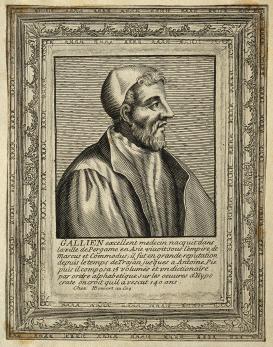The surviving corpus of the Greek physician and philosopher Galen of Pergamon, who lived from 129 to 216 or 217 CE, is the most extensive single-authored collection of Greek literature prior to Saint John Chrysostom. The early modern period represents two of the starkest extremes in Galen’s long reception: at first, in the sixteenth century, he was a source of great interest and authority, but in the seventeenth century he was relegated to the position of a dogmatic Ancient whose name, like that of Aristotle, came to be associated with impiety and error. Yet whereas Aristotle’s decline has been the subject of careful and sophisticated historical study, accounts of Galen’s decline have remained largely one-dimensional and incomplete. This project aims to uncover the variety and subtlety of Galen’s reception in early modern intellectual culture and practice by looking beyond rhetoric and the excesses wrought by polemical and professional conflict. The picture that emerges is not without its contradictions, but it is clear that, like Aristotle’s, Galen’s path to impiety and error was neither as linear nor as definitive as is commonly portrayed.

Galen of Pergamon. Line engraving by Henri Bonnart (1642–1711). Wellcome Collection, public domain.
Project
